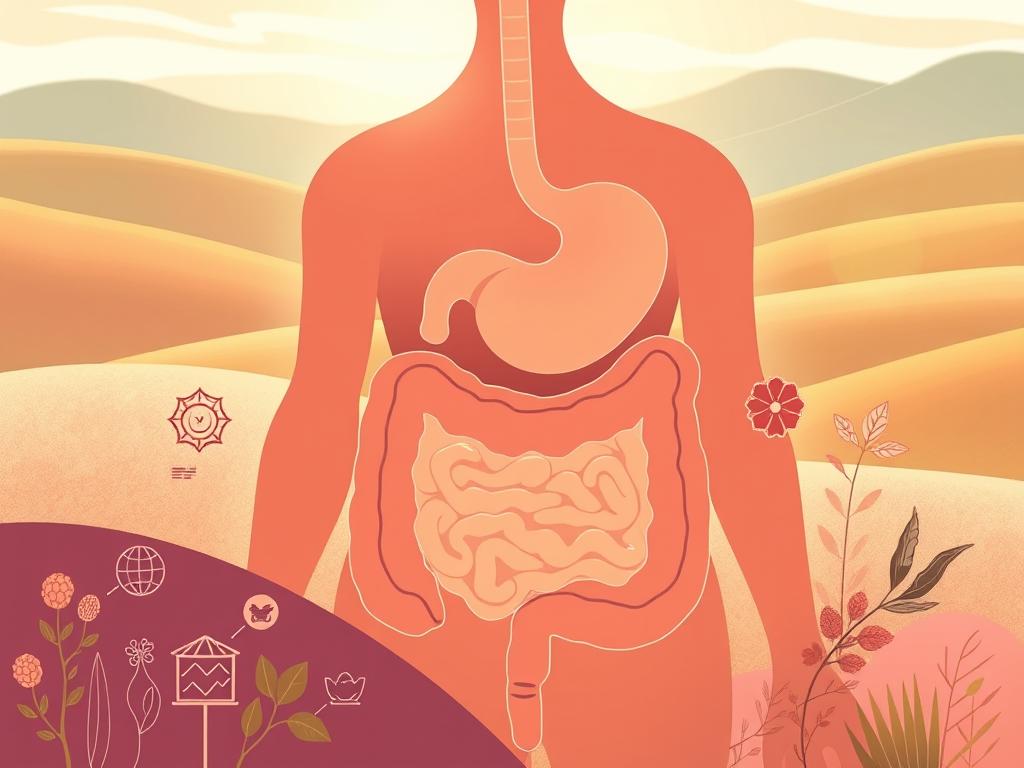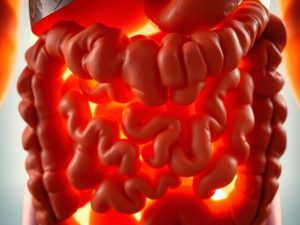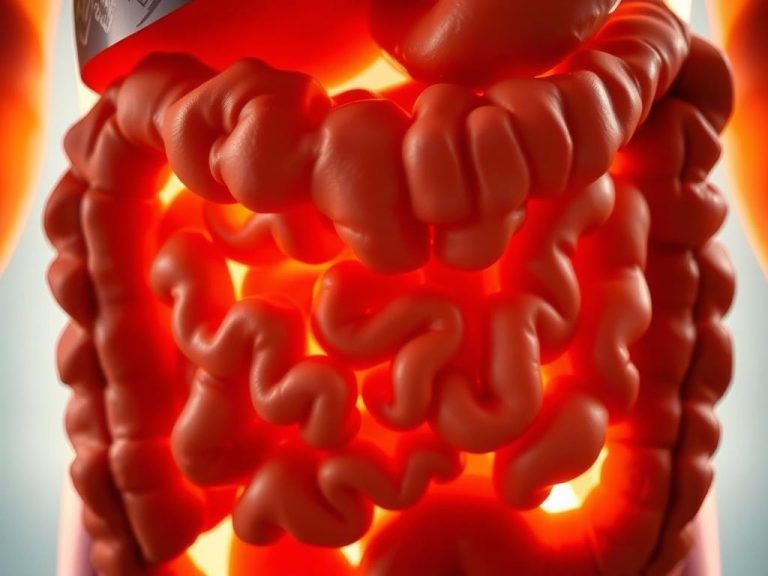A Healthy Gut, A Healthy You: Top Ways to Boost Digestive Health
Digestive health is vital for overall wellness. It affects many aspects of our body’s functions. Understanding our gut can help us maintain optimal health1.
A balanced diet is key to supporting healthy digestion. It ensures our digestive system works well. Eating various nutrients promotes gut health and prevents problems1.
People who eat a diverse diet have better microbiome balance. This leads to improved wellness outcomes1.
The typical American diet lacks proper nutrition. Most people eat only 10-15 grams of fibre daily. Experts recommend 20-35 grams per day2.
This lack of fibre can greatly impact digestive health. It also affects overall well-being.
Good digestion requires smart food choices and lifestyle changes. Spotting digestive issues early helps manage gut health better. It can prevent serious complications.
Understanding the Digestive System and Its Impact on Overall Health
The human digestive system transforms food into essential nutrients that fuel our body. This complex network of organs maintains overall health and wellbeing. It’s a crucial part of our bodily functions3.
Our digestive tract includes the gastrointestinal tract and vital organs like the liver and pancreas. It breaks down nutrients into absorbable parts for our body to use3.
Proteins become amino acids, fats turn into fatty acids, and carbohydrates change into simple sugars. This process ensures our body gets the necessary nutrients3.
The Role of Gut Flora in Digestive Health
Gut flora, or the microbiome, is vital for digestive wellness. These beneficial bacteria in our gut perform essential functions:
- Aid in nutrient absorption
- Support immune system function
- Help prevent harmful bacterial growth
The Brain-Gut Connection
The brain-gut connection shows a fascinating link between our digestive system and mental health. The enteric nervous system contains nerves within the GI tract. These nerves manage digestive processes and respond to our emotional state3.
Common Digestive Issues and Their Effects
Digestive issues can greatly impact quality of life. Some common conditions include:
- Irritable Bowel Syndrome (IBS) – affects 10-15% of the global population4
- Gastroesophageal Reflux Disease (GERD) – impacts about 20% of adults4
- Inflammatory Bowel Disease – estimated at 1.3% of the US population4
Knowing these digestive challenges helps people seek proper medical guidance. It also encourages maintaining optimal gut health for overall wellbeing.
How to Improve Gut and Digestive Health?

Your gut health affects your overall well-being. It impacts your immune function and mental clarity5. Improving digestive wellness requires a holistic approach.
To boost gut health, try these key strategies:
- Consume a fibre-rich diet with 20-35 grams of daily intake6
- Stay hydrated with appropriate fluid intake
- Incorporate probiotic-rich foods
- Manage stress levels
- Practice regular exercise
Your food choices greatly affect digestive wellness. Whole foods support beneficial gut bacteria5. Fermented foods like kefir and kombucha can reduce inflammation.
Your gut microbiome contains trillions of microbes. These microbes influence your overall health5. Strategic diet and lifestyle changes can enhance digestion.
Key recommendations include:
- Eat colorful vegetables and fruits
- Include whole grains and legumes
- Limit processed food consumption
- Moderate alcohol intake
- Avoid smoking
Sustainable gut health requires consistent, balanced choices. Listen to your body and make gradual changes5. These small steps can support your digestive system.
Essential Nutrients and Foods for Optimal Digestive Function
A healthy digestive system needs proper nutrition and wise food choices. Fibre-rich foods, probiotics, and fermented items can boost your digestive health. Strategic food selections can make a big difference.
Fibre-Rich Foods for Digestive Health
Dietary fibre is vital for good digestion. Most people don’t get the recommended 25-30 grams daily78. Eating fibre-rich foods helps prevent constipation and feeds healthy gut bacteria9.
- Leafy greens like kale and spinach
- Whole grains such as brown rice and whole wheat bread
- Apples containing beneficial pectin
Probiotics and Fermented Foods
Probiotics are key to gut health. Fermented foods introduce good bacteria to your digestive system9. Yogurt, kimchi, and sauerkraut are great probiotic sources.
These foods can help ease digestive issues8. They’re tasty additions to any balanced diet.
Foods to Avoid for Better Digestion
Some foods can upset your digestive system. Be careful with excessive amounts of these items:
- Caffeine drinks that may cause heartburn7
- Spicy foods that trigger digestive discomfort7
- Acidic foods like tomatoes and citrus fruits7
A balanced diet can greatly improve your digestive wellness. For personalised advice, chat with a nutrition expert.
They can help you create the best digestive health plan. Your gut will thank you!
Lifestyle Factors Affecting Digestive Wellness
Your daily habits greatly impact your digestive health. Chronic stress can harm gut function10. Knowing how lifestyle affects digestion helps you make better choices for overall wellness.
Quality sleep is vital for gut health. Aim for 7 hours of sleep each night11. Poor sleep can upset gut bacteria balance and cause digestive issues10.
Exercise is crucial for digestive health. It stimulates gut muscles and promotes regular bowel movements11. Regular physical activity helps maintain a healthy weight and reduces digestive disorder risks10.
- Manage stress through relaxation techniques
- Prioritise consistent sleep schedules
- Engage in regular physical activity
- Limit alcohol consumption
- Stay adequately hydrated
Other key lifestyle factors include:
- Stress management: High stress levels can harm gut health10
- Hydration: Not drinking enough water can cause constipation11
- Dietary choices: Processed foods and excess sugar can disrupt gut microbiome10
Mindful lifestyle choices can boost your digestive wellness. Small changes can lead to big improvements in your overall health.
Conclusion
Maintaining gut health requires a comprehensive strategy. It involves understanding the link between diet, lifestyle, and our body’s internal ecosystem12. Gut microorganisms influence our immune function and mental well-being12.
Long-term digestive wellness needs consistent attention to multiple factors. Regular exercise can boost gut flora diversity13. Prioritising sleep and nutrition creates a supportive environment for optimal digestive function14.
Adults should aim for 7 hours of sleep nightly. They should also engage in 150 minutes of moderate-intensity exercise weekly13. These habits support gut health maintenance.
Dietary choices are crucial for digestive health. Whole foods, rich in fibre, can foster a healthy microbiome14. They also help reduce disease risk.
Be mindful of your diet. Avoid processed foods and excessive sugar. Instead, include probiotics and nutrient-dense options that support gut bacteria13.
Proactive management of digestive health needs ongoing education and professional guidance. Regular check-ups are important. Be aware of bodily changes. Commit to a balanced lifestyle.
These strategies help develop a robust approach to digestive wellness. They support overall health and well-being. Your gut health journey starts with small, consistent steps.
FAQ
What is the importance of gut health?
Gut health affects digestion, immunity, mental health, and nutrient absorption. A balanced gut microbiome supports optimal bodily functions. It can prevent various health issues and improve overall well-being.
How do probiotics benefit digestive health?
Probiotics are good bacteria that maintain a healthy gut microbiome. They support digestion, improve nutrient absorption, and boost immune response. Probiotics can also help prevent and manage digestive disorders like irritable bowel syndrome.
What are the signs of an unhealthy gut?
Common signs include digestive discomfort, bloating, and frequent stomach upset. Unintentional weight changes, constant fatigue, and skin irritation may also occur. Recurring food intolerances can indicate an unhealthy gut as well.
How does stress affect digestive health?
Chronic stress can alter gut bacteria and increase inflammation. It disrupts the brain-gut connection and may lead to irritable bowel syndrome. Stress can also worsen existing digestive issues.
What foods are best for improving gut health?
High-fibre vegetables and fermented foods like yoghurt and kimchi support gut health. Prebiotic-rich foods such as garlic and onions are beneficial. Probiotic-rich items like kefir and sauerkraut also improve gut health.
How much fibre should I consume daily?
Adults should aim for 25-30 grams of dietary fibre per day. Whole grains, legumes, fruits, vegetables, and nuts are excellent sources. These foods support digestive health and regular bowel movements.
Can exercise improve digestive health?
Regular exercise promotes healthy bowel movements and reduces inflammation. It helps manage stress and supports a balanced gut microbiome. Exercise can significantly improve overall digestive health.
What role do hydration and water play in digestion?
Proper hydration is crucial for digestive function. It helps prevent constipation and supports nutrient absorption. Water also maintains the mucosal lining of the intestines.
Are there foods that negatively impact gut health?
Processed foods, excessive sugar, and artificial sweeteners can harm gut health. High-fat foods and alcohol may disrupt gut microbiome balance. These items can cause inflammation in the digestive system.
How quickly can I improve my gut health?
Gut health improvements can be noticed within weeks. Implement dietary changes, manage stress, and stay hydrated. Include probiotics and prebiotics in your diet. Consistency is key for long-term digestive wellness.
Source Links
- How To Improve Digestive Health: 8 Powerful Tips
- Digestive Health Tips – American College of Gastroenterology
- Your Digestive System & How it Works – NIDDK
- Your Digestive System | University of Michigan Health
- Improving your gut health improves all aspects of your health, including your mood
- Super Steps to Boost Digestive Health
- Good foods to help your digestion
- The 11 Best Ways to Improve Your Digestion Naturally
- The best foods to help improve your digestive system
- How to Improve and Reset Gut Health
- A Happy Gut: X Essential Tips for Supporting Your Digestive System’s Health
- What doctors wish patients knew about improving gut health
- 10 research-backed ways to improve gut health
- Supporting Your Digestive System: Three Ways to Improve Gut Health






